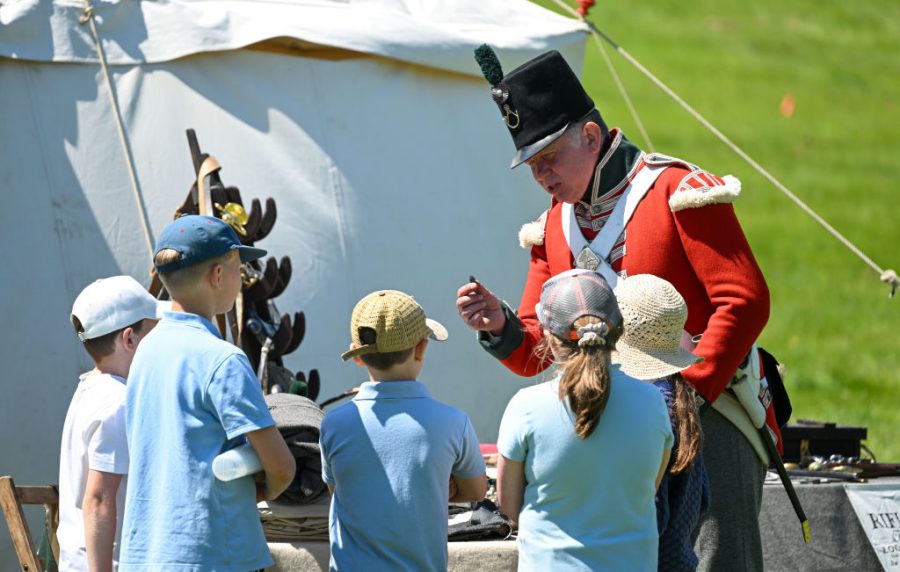Many were the jibes when Boris Johnson announced that he was ‘thrilled’ to be back on the tennis court in 2021 as lockdown restrictions eased. ‘Bloody posho poncing about on a tennis court’ or ‘how typical’ were probably some of them. Sir Keir, naturally, made sure that he was photographed on a football pitch on the same day. But here’s the thing: these days, playing tennis isn’t posh. Yes, chins love to watch it and play it – helped by tennis courts of their own – but the playing of tennis has become democratised. Reports of next-gen community tennis clubs springing up all over the country have become widespread, according to the Financial Times.
And yet tennis has always had a class problem. Long viewed as a pastime solely for the aristocracy and middle classes, tennis has good reason to be associated with the elite: think ice cubes rattling away in the clubhouse, membership at vast prices, immaculate tennis whites, lots of free time during the day. It’s hardly surprising that as a sport it produces feelings of revolutionary ire in some people.
To add to this, the major tennis tournaments played in this country – Queen’s and Wimbledon – are profitable because they play on these associations of elitism and old-school money: strawberries and cream, Panama hats, dress codes. Crowds love Wimbledon not just for its tennis but also for its raging gatekeeping snobbery, while the Queen’s Club doesn’t have to do much more than put up a few cordons to give people the feel that some necessary exclusion is going on somewhere.
But if British tennis tournaments play on their toff overtones for profit, the pros themselves tell a totally different story. British players who qualify for Wimbledon are anything but posh – and proud of it. Take Liam Broady and Dan Evans, both top-ranking British players, who have risen through the gritty ranks of the tour on little to no financial recompense, a lot of sweat and some long-suffering parents willing to drive them around the country at weekends.
Broady, the cheeky chappie from Stockport who delighted the centre court crowd back in 2023 by telling his mum to ‘chill out’ because he had ‘already won 80 grand’, briefly became something of a national treasure. Dan ‘Evo’ Evans, the self-styled bad boy from Birmingham, lived with a host family in Loughborough at the start of his career – far from manicured private courts and a clubhouse. Andy Murray, arguably Britain’s most successful tennis player, began his ascent on the drizzly tennis courts of Dunblane, a town not known for its tennis culture.
When this country did, finally, produce a posh tennis player in the shape of privately educated Old Dragon Tim Henman, the media went wild for his Oxfordshire middle-class credentials. At the peak of his career, Henman inspired public frenzy as the Daily Mail and other titles went wild for his inscrutable, Panama hat-wearing father Tony, his lovely Pony Club wife Lucy, and – rather mysteriously – his looks.
The British love tennis precisely because it is a familiar choreography of our class struggle, kept within the tramlines
But I always felt rather sorry for Tim Henman, a man who came to represent far more than the tennis he played: a rare beast who elided the public perception of tennis with his ambition. In 1999, Pat Cash, earring-sporting Australian and former Wimbledon champion, declared that Henman would never make it because he was ‘the product of the middle classes’ and ‘didn’t have the stomach for a fight’. How very unfair of Mr Cash – but also, as it turns out, so canny of him to underline the nation’s hopeful obsession with Henman as our desire to see sport and player reunited in the same class bracket.
So why the social dissonance between the sport and its professionals? Who gains? Certainly not the professionals, who bemoan the sport’s middle-class straitjacket – and certainly not the Lawn Tennis Association, who have long disputed the ‘white, male and stale’ perceptions of the sport. This ‘negative’ view, they claim, deters young players coming up through community outreach schemes, leading the Guardian to state that there ‘will never be a Marcus Rashford of tennis’.
In his book A People’s History of Tennis, David Berry attempts to counter the monocultural record of the sport, arguing for its radical nature that has always attracted maverick visions of femininity and politics – pointing to the socialist tennis movement of the 1970s, when there was briefly a ‘Worker’s Wimbledon’. Personally, I’m not convinced that we want tennis to be radical. The British love tennis precisely because it is a familiar choreography of our class struggle, kept within the tramlines. Boris knew it when he lumbered onto a tennis court that day – and we know it when we switch the box on for Wimbledon. As a social game, we’re always at love-all without an umpire.








Comments